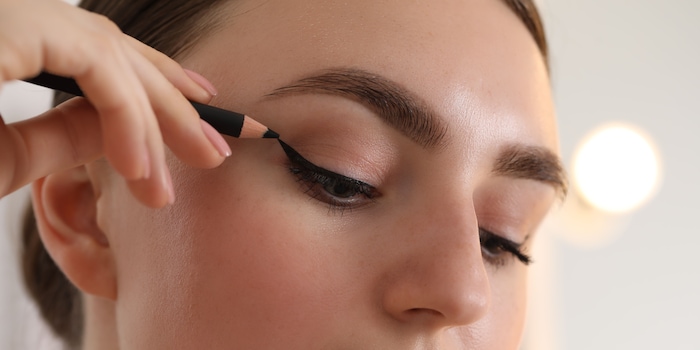
Guide
Gifts without pollutant alarms: How to buy toxic-free gifts
by Anna Sandner

They stay in the environment forever and are suspected of being carcinogenic: forever chemicals. Now, a European study has found harmful chemicals in eyeliners, lip liners, hair conditioners and other care products.
Ever wondered what’s inside your favourite lip liner? A recent study conducted by the European Chemicals Agency (ECHA) has found one more reason to take a closer look at the ingredients in your eyeliner and other cosmetic products. The ECHA examined around 4,500 cosmetic products in 13 European countries for harmful ingredients. The result: over 200 of them contained hazardous chemicals banned in the EU.
Unfortunately, the ECHA report hasn’t named the brands or manufacturers of these products. However, the study does mention that the products in question stem from various suppliers and are present in all price ranges.
The eyeliners, lip liners, hair masks and other products tested contain certain chemicals such as perfluorononyl dimethicone and cyclopentasiloxane (D5). These hard-to-pronounce substances belong to the category of forever chemicals.
As the name suggests, their lifespan is huge. And this means they keep on accumulating in the environment and in organisms. Once they’ve found their way into the human body, they’re suspected of decreasing fertility and causing cancer. Perfluorononyl dimethicone, in particular, belongs to the group of PFAS chemicals (per- and polyfluorinated alkyl compounds).
PFAS, the best known forever chemicals, are found in countless everyday products – from coated pans to water-repellent clothing. The problem with these types of chemicals is that they’re both difficult to break down and a potential health hazard. For example, by messing with your hormones or damaging your liver.
You’re probably wondering how to ban these chemicals from your daily skincare routine. The first step to take requires some effort, but is effective. Carefully check the list of contents on your cosmetics products for the two substances mentioned above: perfluorononyl dimethicone and cyclopentasiloxane (D5). Unfortunately, these are by far not the only ones that should be avoided in cosmetics. Also try checking for these common culprits: PTFE, hydrofluorocarbon 152a, C9-15 fluoroalcohol phosphate and perfluorodecalin. Admittedly, that really takes the fun out of shopping.
It might be easier to look out for labels including «PFAS-free», «PFC-free» or «fluorocarbon free».
You can also equip your mobile with a virtual helper. BUND, the German Federation for the Environment and Nature Conservation, came up with the ToxFox, a German-language app that helps you check cosmetics and everyday products for harmful substances. All you need to do is scan the barcode on a product’s packaging to check for any harmful substances. If there’s no information on the product yet, you can send a request to the product’s manufacturer directly via the app.
Science editor and biologist. I love animals and am fascinated by plants, their abilities and everything you can do with them. That's why my favourite place is always the outdoors - somewhere in nature, preferably in my wild garden.
Practical solutions for everyday problems with technology, household hacks and much more.
Show all